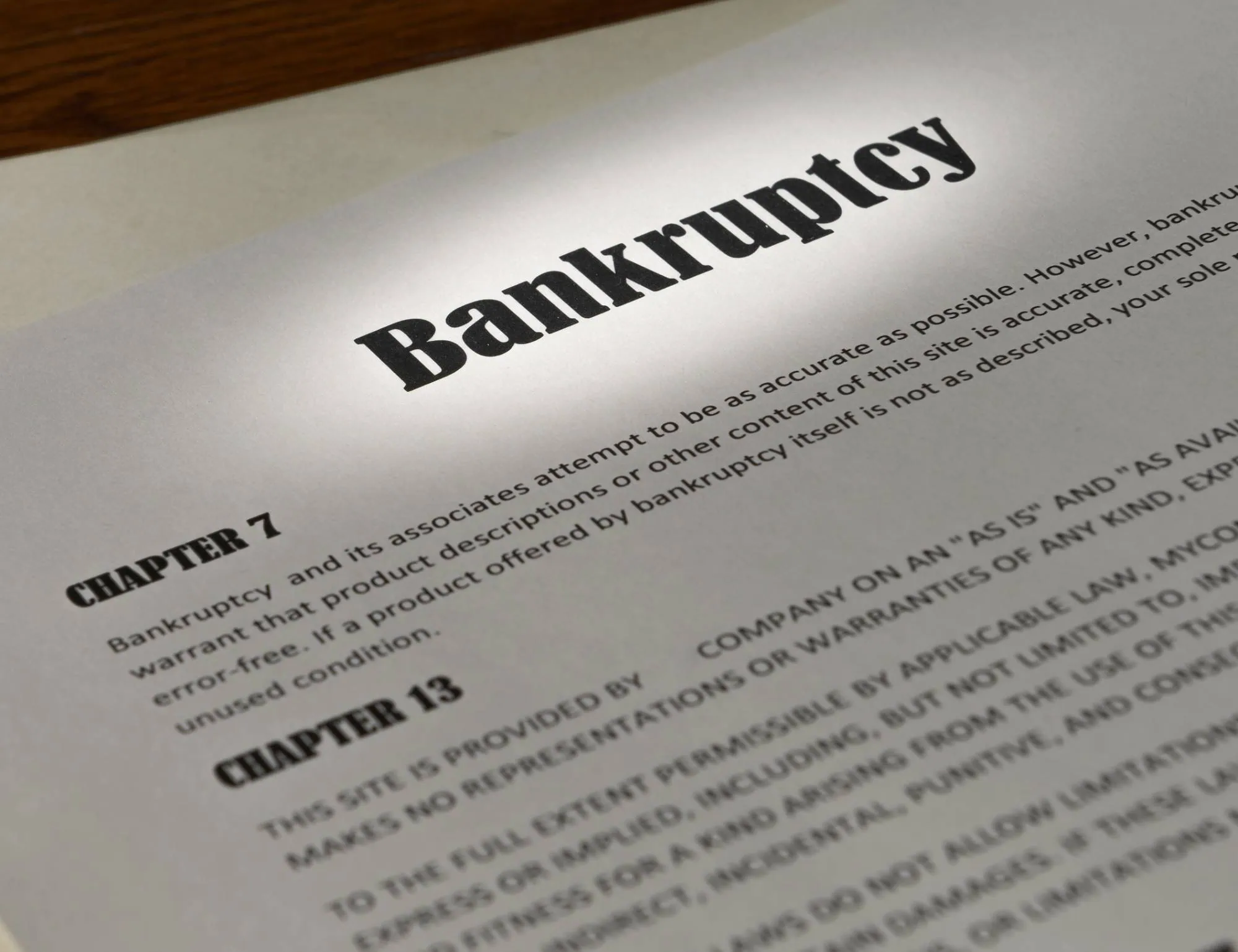
The Importance of Proper Service
The New York Civil Practice Law and Rules (CPLR) govern the civil justice process, as well as the Federal Rules of Civil Procedure (FRCP). Under both sets of rules, a plaintiff in a civil action must properly serve both the complaint and summons to all defendants. The complaint is the petition the plaintiff files with the court to initiate the lawsuit (in this case, the foreclosure action), and the summons tells the defendant how long they have to respond and, sometimes, when they need to come to court. Under the New York Civil Procedures Rules, service can be effectuated in one of several ways—personal, substitute, and in last place is nail and mail and mail only:
- “By delivering the summons within the state to the person to be served” CLPR Section 308
- “As an alternative to the methods of personal service authorized by section 307, 308, 310, 311 or 312 of this article, a summons and complaint, or summons and notice, or notice of petition and petition may be served by the plaintiff or any other person by mailing to the person or entity to be served, by first class mail, postage prepaid, a copy of the summons and complaint, or summons and notice or notice of petition and petition, together with two copies of a statement of service by mail and acknowledgement of receipt in the form set forth in subdivision (d) of this section, with a return envelope, postage prepaid, addressed to the sender.” CPLR Section 312-A
- If neither of the two above service methods is successful, the lender may be able to “nail and mail,” which requires affixing the summons and complaint to the physical residence and also mailing a copy.
New York law also has additional requirements under Real Property Actions and Proceedings Law (RPAPL) §1303 that must be included in a summons, such as a disclaimer that clearly informs the homeowner of the situation. The law requires certain language, including:
-
- “You are in danger of losing your home. If you fail to respond to the summons and complaint in this foreclosure action, you may lose your home. Please read the summons and complaint carefully. You should immediately contact an attorney or your local legal aid office to obtain advice on how to protect yourself.”
- YOU ARE NOT REQUIRED TO LEAVE YOUR HOME AT THIS TIME. You have the right to stay in your home during the foreclosure process. You are not required to leave your home unless and until your property is sold at auction pursuant to a judgment of foreclosure and sale. Regardless of whether you choose to remain in your home, YOU ARE REQUIRED TO TAKE CARE OF YOUR PROPERTY and pay property taxes in accordance with state and local law.” RPAPL §1303
If service is not proper, not only does the homeowner not have sufficient notice of the foreclosure to respond, but the court in which the bank filed the action will not have personal jurisdiction over the defendant. Such jurisdiction is necessary for the court to preside over the case, as demonstrated in numerous cases. For example, in Emigrant Mortg. Co. v. Westervelt, the court cites that “without personal jurisdiction over the defendant, {} all subsequent proceedings are thereby rendered null and void.’”
If the defendant never responds to the foreclosure, the court may issue a default judgment. If the defendant never received service, they can seek to have the default judgment set aside for lack of jurisdiction. If the court finds that service was improper, it should vacate the default judgment and dismiss the complaint according to CPLR 5015(a)(4), which states that a party can move to vacate an order based on “lack of jurisdiction to render the judgment or order.”
When Will the Court Hold a Traverse Hearing?
Determining whether the plaintiff properly served the summons and complaint can be a tricky matter. The process server will claim they served the papers and the defendant can claim they did not receive them. Courts are simply not able to hear every he-said, she-said argument over service. However, because of the importance of personal jurisdiction, it is critical for New York courts to have a standard for when to hold a hearing for parties to present evidence and challenge service. These hearings are known as “traverse hearings,” and courts will not necessarily hold them in every case that involves a challenge of proper service and jurisdiction.
A process server can complete an affidavit of service that is a sworn statement they served the summons and complaint. This affidavit constitutes a rebuttable presumption of proper service, as demonstrated in cases such as Bank of N.Y. Mellon v. Marolda. The court notes in that case that to rebut this presumption, a defendant must do more than “merely deny” the service. Instead, the defendant must file a motion to dismiss that submits admissible evidence supporting their claim of improper service. They can include affidavits from the defendants themselves or others who have personal knowledge of the matter. The court will decide whether the sworn statements and supporting evidence is enough to successfully rebut the presumption. If so, the court will schedule a traverse hearing. Bank of N.Y. Mellon v. Marolda notes that “a hearing to determine the validity of service is not required where “the defendant fails to swear to specific facts rebutting the statements in the process server’s affidavit.”
Court Discretion for Traverse Hearings
If the court reads the defendant’s motion to dismiss, analyzes the arguments from both parties regarding service, and determines the matter is unresolved, the court should schedule a hearing. However, many courts deny a traverse hearing, as well as a motion to dismiss. It is important to have a highly experienced foreclosure defense lawyer handling your case who knows how to present evidence of improper service and jurisdiction that meets the court standard for a traverse hearing, as seen in Bank of N.Y. Mellon v. Marolda and US National Bank Ass’n v. Melton.
If you believe you should have had a traverse hearing but the court denied the request, you can appeal the court’s decision. There are several cases in New York, such as Bank of Am., N.A. v Diaz, in which the Appellate Division reviews the lower courts’ decision to deny a hearing and reverses the decision if it finds there was enough evidence to rebut the Affidavit of Service. In that case, the Appellate Court ruled this way based on the following facts:
In response, defendant attests that he was never served with the summons and complaint, that he does not reside at the 1509 East address, and has never been inside that property. Defendant submitted extensive supporting documentation including the first page of the mortgage at issue here and sixteen consecutive years’ worth of apartment leases for a different address. These documents establish that defendant resided next door to the 1509 East address, at 1511 East 172d Street.
Defendant also points to plaintiff’s subsequent service by mail of both an additional notice under CPLR 3215(g)(3) and a motion for judgment of foreclosure. Both of these submissions were mailed to the 1509 East address. Defendant argues that those mailings demonstrate that plaintiff was under the mistaken impression that defendant resided at that address, and thus plaintiff would presumably direct a process server to that address.
The Court then ruled that “These issues warrant a traverse hearing concerning whether defendant was properly served with the summons and complaint.”
A skilled foreclosure defense lawyer can ensure that you file a proper appeal if they believe the court wrongfully denied your traverse hearing and motion to dismiss.
Traverse hearings can vary significantly from jurisdiction to jurisdiction, and even from one courtroom to the next. Some are formal and others are less so. Some judges also want to address any other issues in your motion to dismiss at the traverse hearing, so your attorney should be prepared to do so.
Unique issues can also arise when it comes to challenging service and jurisdiction. In one recent case in New York, Chase Home Fin., LLC v Berger, the court adjourned and rescheduled the traverse hearing several times. Before there was ever a determination regarding service, the plaintiff, Chase Home Finance, moved for an extension for service, claiming that the bank discovered the Affidavit of Service was false, as the wrong process server signed it. Because the case had been dragging on for nearly nine years and because the bank admitted that the Affidavit of Service was false, the court then granted the motion to dismiss the complaint and vacated the default judgment without even holding a traverse hearing. The court held:
[T]he Court finds that an extension of time to serve the summons and complaint is not warranted in the interests of justice under the circumstances of this case … Plaintiff concedes that its service of the summons and complaint on Defendant was improper and is grasping at straws to correct its error. Under these circumstances, there can be no question that Defendant has been prejudiced. See, Wilkins v. Burgess, 25 AD3d 794, 795 (2d Dept. 2006). Based on the foregoing, it is hereby ORDERED that Plaintiff’s motion for an extension of time to serve the summons and complaint is denied; and it is further ORDERED that, in light of the Court’s findings herein, Defendant’s motion to vacate the Order of Reference dated April 6, 2010, and the Judgment of Foreclosure dated August 25, 2010 and subsequent order affirming the Judgment of Foreclosure dated February 20, 2015 is granted; and it is further ORDERED that Defendant’s motion to dismiss the complaint is granted without the necessity of conducting a Traverse hearing.
This is only one example of how the issue of service and jurisdiction can be a strong defense against a foreclosure action in certain situations. You should never let a default judgment stand if service was not proper.
Contact a Nassau and Suffolk County Foreclosure Defense Law Firm Today
Service and jurisdiction can be a more complex matter than you may imagine. If you learn of a default judgment for foreclosure and you were never served, you should immediately contact a foreclosure defense lawyer who can help you seek a dismissal and represent you in a traverse hearing if needed. The Law Office of Ronald D. Weiss represents clients throughout the entire foreclosure process. We can help you find solutions to prevent foreclosure and can guide you through the legal process. Call (631) 271-3737 or contact us online to learn more about the bankruptcy process and possible benefits today.




